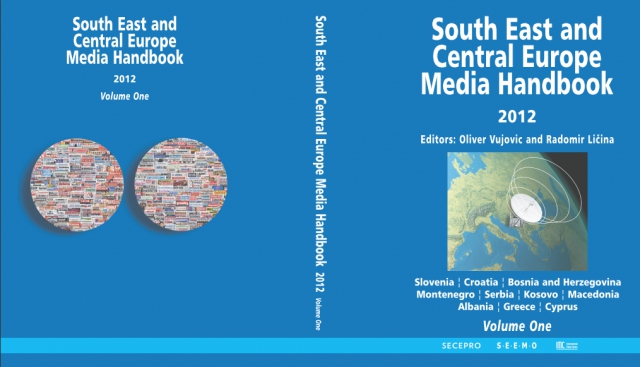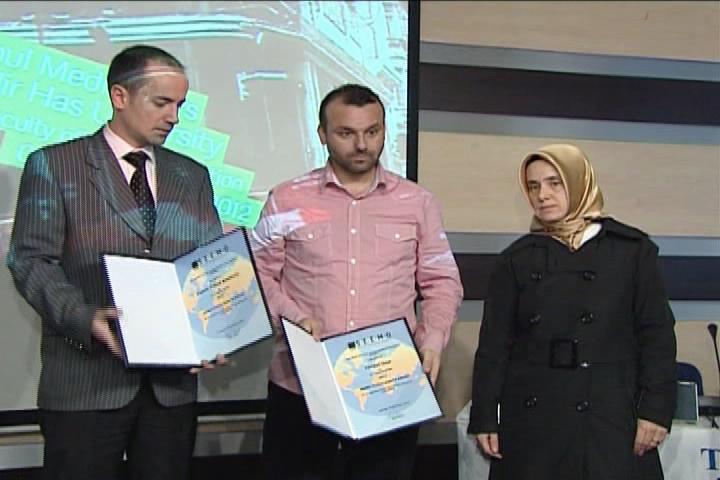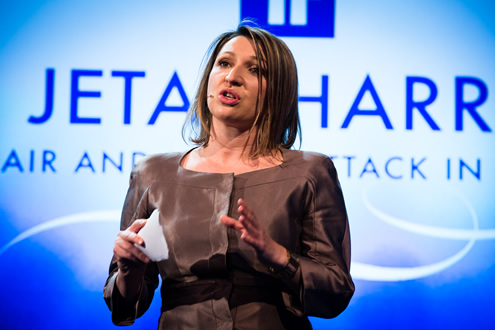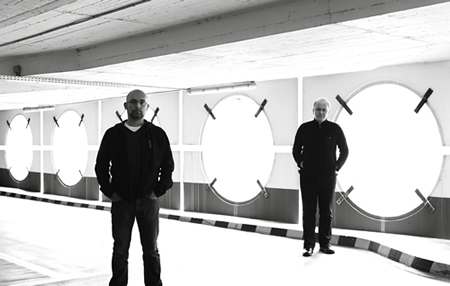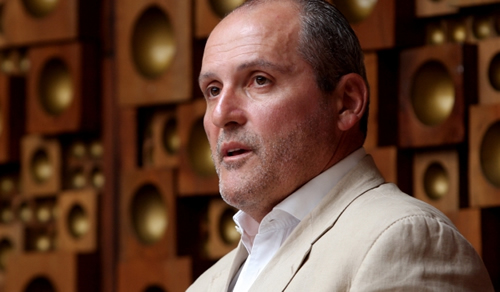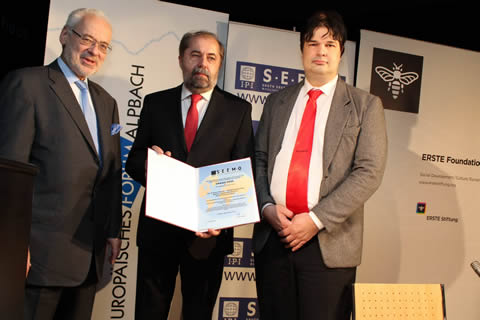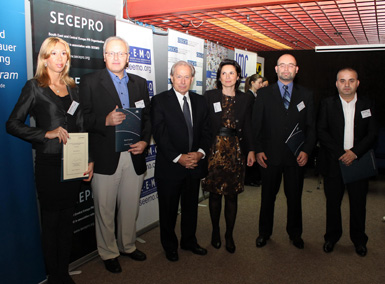But I must explain to you how all this mistaken idea of denouncing pleasure and praising pain was born and I will give you a complete account of the system, and expound the actual teachings of the great explorer of the truth, the master-builder of human happiness. No one rejects, dislikes, or avoids pleasure itself, because it is pleasure, but because those who do not know how to pursue pleasure rationally encounter consequences that are extremely painful. Nor again is there anyone who loves or pursues or desires to obtain pain of itself, because it is pain, but because occasionally circumstances occur in which toil and pain can procure him some great pleasure. To take a trivial example, which of us ever undertakes laborious physical exercise, except to obtain some advantage from it? But who has any right to find fault with a man who chooses to enjoy a pleasure that has no annoying consequences, or one who avoids a pain that produces no resultant pleasure?
Author: admin2022
2012 SEEMO HUMAN RIGHTS AWARD PRESENTATION IN ISTANBUL
The South and East Europe Media Organisation (SEEMO), an affiliate of the International Press Institute (IPI), has named Turkish cameraman Cüneyt Ünal and his missing colleague, Jordanian reporter of Palestinian origin Bashar Fahmi Kaddumi, the winners of the 2012 SEEMO Human Rights Award.
The award is scheduled to be presented during a ceremony on 6 December 2012 at the Kadir Has University in Istanbul, Turkey.
Ünal has worked as a cameraman for different news organizations in Turkey, including TRT Turk and CNN Turk. In May, the Turkish Association of News Cameramen awarded him the Baran Information Technology Special Award as part of the ZOOM 2011 Best News Pictures of the Year International Competition for Ünal’s coverage of the conflict in Libya in 2011.
Ünal was covering the Syrian civil war for the U.S.-funded Arabic-language satellite station Al Hurra in August 2012 when he travelled to Aleppo, where he was kidnapped, beaten and delivered to the Syrian Army on 21 August. He was released on 18 November after 89 days in captivity.
Fahmi Kaddumi, also with Al Hurra, travelled to Aleppo with Ünal and disappeared on 21 August. According to Ünal, Fahmi Kaddumi was shot as a pro-regime militia attacked the pair and other journalists with whom they were travelling. Ünal said he has not seen his colleague since that day and Fahmi Kaddumi’s whereabouts remain unknown. The Syrian government denies that it is holding him captive.
The SEEMO Human Rights Award was established in 2002 in connection with the International Human Rights Day on 10 December. Previous award winners are:
2011: Veton Suroi, founder of Koha Ditore daily, Pristina.
2010: Christo Komarnitski, cartoonist, Bulgaria.
2009: Pavol Demes, Director, German Marshall Fund of the United States (GMF), Bratislava office, Slovakia.
2008: Spomenka Hribar, journalist, writer and human rights advocate, Slovenia.
2007: Seki Radoncic, writer and human rights activist specialising in war crimes, Montenegro.
2006: Abdulhalim Dede, journalist, member of the Turkish-Muslim minority in Western Thrace, Greece.
2004: Fatos Lubonja, author, Albania.
2003: Nebojsa Popov, founder and editor of the Belgrade-based magazine Republika, Serbia.
2002: Christine von Kohl, founder of the Vienna-based magazine Südosteuropäischer Dialog, Austria.
Jeta Xharra wins 2012 Dr. Busek – SEEMO Award for Better Understanding
The Vienna-based South East Europe Media Organisation (SEEMO), an affiliate of the International Press Institute (IPI), has announced that Kosovo journalist Jeta Xharra is the winner of the 2012 Dr. Erhard Busek – SEEMO Award for Better Understanding in South East Europe. A 10-member international jury chose Xharra for the award based on her outstanding contribution to the process of democratization and better understanding in South East Europe. The award, which carries a cash prize of €3,000, is scheduled to be presented on 16 November 2012 in Vienna by Dr. Erhard Busek, president of the Institute for the Danube Region and Central Europe, and by Oliver Vujovic, SEEMO secretary general.
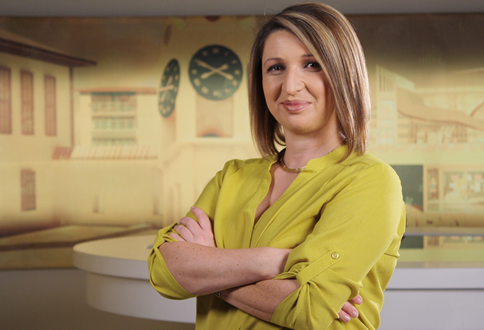
The Winner
Since 2005, Xharra has been the Kosovo director of the Balkan Investigative Reporting Network (BIRN) as well as a presenter on, and the editor-in-chief of, “Life in Kosovo”, which combines investigative journalism and discussions. Kosovo’s most-watched television current affairs program, “Life in Kosovo” is shown weekly on public broadcaster Radio Television Kosovo and has pushed the boundaries of debate, holding authorities to account and opening discussion on previously-taboo subjects. BIRN Kosovo has 70 staff members and contributors throughout Kosovo. BIRN produces English-language publications, such as Balkan Insight and Prishtina Insight, as well as broadcast programs and print publications in local languages, including “Life in Kosovo”, the newsletter Justice in Kosovo and reports from BIRN’s Courts Monitoring Project. Xharra started her journalistic career as a fixer/local producer for the BBC News and Channel 4 in 1998, and later became the manager of the BBC Kosovo Bureau. In 1999, she worked for the BBC News in Albania and Macedonia. In 2003 she opened the Kosovo office of the London-based Institute for War and Peace Reporting. Xharra has lived most of her life in Pristina, Kosovo, where she attended school and university. She studied drama at the Academy of Arts in Kosovo. She also lived in London, where she obtained a master’s degree in War Studies at King’s College in 2000 and a master’s degree with distinction in Screenwriting from the London College of Printing in 2002. In London, Xharra wrote the play “Warless,” which was presented as a reading at London’s Royal Court Theatre during the Young Writer’s Festival in 2004. She also contributed to different publications in the United Kingdom, including the Independent, the Economist, Sunday Telegraph and Jane’s Intelligence Review. While in the United Kingdom, Xharra worked for the Foreign News Planning Desk at the BBC World Service and for the Institute for War and Peace Reporting.
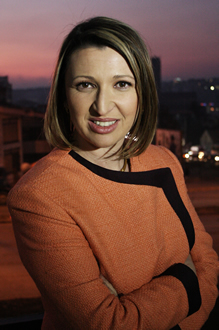
The Dr. Erhard Busek – SEEMO Award for Better Understanding in South, Eastern and Central Europe honours journalists, editors, media executives, media experts, writers and journalism trainers in South East Europe who have contributed to promoting better understanding in the region and who have worked towards ending minority-related problems, ethnic divisions, racism, xenophobia, gender discrimination, homophobia etc. The award is sponsored by Busek, who is also former vice-chancellor of Austria, Jean Monet Professor ad personam, president of the Institute for the Danube Region and Central Europe, coordinator of the Southeast European Cooperative Initiative (SECI), and former special coordinator of the Stability Pact for South Eastern Europe.
Previous winners of the award include:
2011: Drago Hedl, (Croatia) journalist, Zagreb-based daily Jutarnji List. 2010: Omer Karabeg (Bosnia and Herzegovina), journalist, South Slavic and Albanian Language Service program of Radio Free Europe (RFE/RL), founder and editor of the radio program Most (Bridge), Prague, Czech Republic. 2009: Boris Bergant (Slovenia), co-founder of the Alpe Adria broadcasting project, former deputy-president of the European Broadcasting Union (EBU) and former deputy director of Radio Television Slovenia. 2008: Brankica Stankovic (Serbia), author of the TV program Insajder, produced by B92 Television, Belgrade, Serbia. 2007: Milena Dimitrova (Bulgaria), columnist, Sofia-based daily Trud, Bulgaria. 2006: Danko Plevnik (Croatia), columnist, Split-based daily Slobodna Dalmacija, 2005: Brankica Petkovic (Slovenia), head of the Center for Media Policy, Peace Institute, Ljubljana, Slovenia. 2003: Kemal Kurspahic (Bosnia and Herzegovina), former editor-in-chief of the Sarajevo-based daily Oslobodjenje. 2002: Denis Latin (Croatia) author of the TV program Latinica, Croatian Radio Television (HRT)
Last week for Nominations for 2012 Dr. Erhard Busek – SEEMO Award for Better Understanding in South, Eastern and Central Europe
The Dr. Erhard Busek – SEEMO Award for Better Understanding in South, Eastern and Central Europe honours journalists, editors, media executives, media experts, writers and journalism trainers in South East Europe who have contributed to promoting better understanding in the region and who have worked towards ending minority-related problems, ethnic divisions, racism, xenophobia, gender discrimination, homophobia etc.
The award is sponsored by Busek, who is also former vice-chancellor of Austria, Jean Monet Professor ad personam, president of the Institute for the Danube Region and Central Europe, coordinator of the Southeast European Cooperative Initiative (SECI), and former special coordinator of the Stability Pact for South Eastern Europe.
Previous winners of the award include:
2011: Drago Hedl, (Croatia) journalist, Zagreb-based daily Jutarnji List. 2010: Omer Karabeg (Bosnia and Herzegovina), journalist, South Slavic and Albanian Language Service program of Radio Free Europe (RFE/RL), founder and editor of the radio program Most (Bridge), Prague, Czech Republic. 2009: Boris Bergant (Slovenia), co-founder of the Alpe Adria broadcasting project, former deputy-president of the European Broadcasting Union (EBU) and former deputy director of Radio Television Slovenia. 2008: Brankica Stankovic (Serbia), author of the TV program Insajder, produced by B92 Television, Belgrade, Serbia. 2007: Milena Dimitrova (Bulgaria), columnist, Sofia-based daily Trud, Bulgaria. 2006: Danko Plevnik (Croatia), columnist, Split-based daily Slobodna Dalmacija, 2005: Brankica Petkovic (Slovenia), head of the Center for Media Policy, Peace Institute, Ljubljana, Slovenia. 2003: Kemal Kurspahic (Bosnia and Herzegovina), former editor-in-chief of the Sarajevo-based daily Oslobodjenje. 2002: Denis Latin (Croatia) author of the TV program Latinica, Croatian Radio Television (HRT)
Last week for Nominations for 2012 Dr. Erhard Busek – SEEMO Award for Better Understanding in South, Eastern and Central Europe
The South East Europe Media Organisation (SEEMO), an affiliate of the International Press Institute (IPI), calls for nominations for the 2012 Dr. Erhard Busek – SEEMO Award for Better Understanding in South, Eastern and Central Europe. Eligible to be nominated are journalists, editors, media executives, media experts, writers or journalism trainers in South East Europe, who have contributed to promoting better understanding in the region and have worked towards ending minority-related problems, ethnic divisions, racism, xenophobia, gender discrimination, homophobia, etc. The winner will be awarded 3,000 Euros.
The award is sponsored by Dr. Erhard Busek, former Vice-Chancellor of Austria, Jean Monet Professor ad personam, President of the Institute for the Danube Region and Central Europe, Coordinator of the Southeast European Cooperative Initiative (SECI), and Former Special Coordinator of the Stability Pact for South Eastern Europe.
The deadline for applications is 31 May 2012. All material must arrive at the SEEMO office by 31 May 2012.
Should you wish to nominate a candidate for the 2012 Dr. Erhard Busek – SEEMO 2012 Award for Better Understanding in South, Eastern and Central Europe, please send SEEMO the following information:
1. Letter of nomination with basic details about the candidate and the reasons why you propose the specific candidate. 2. Curriculum Vitae of the candidate. 3. Supporting material: a list of the candidate’s merits, information about the media which published and/or broadcast the candidate’s work; any other relevant material. 4. Your contact information: name; address; cell phone, phone and fax number; email address. 5. Candidate’s contact information: name, address, phone number and email address.
If you would like to nominate a media outlet, an organisation or an institution, please include details about the person who would represent the organisation. The award is presented only to individuals.
If your nomination is supported by an organisation or a media outlet, please send us the name of a contact person from the institution supporting your nomination.
If your nomination is supported by another individual or individuals, please send us their details and contact information.
Please send the supporting material to the SEEMO office in Vienna, Austria. TV reports should be on DVD, audio reports on CD, while candidatures for print media representatives should include copies of articles. If possible, video, audio and print material in local languages should be accompanied by a brief translation into English. Unfortunately, supporting material cannot be returned. Please make sure to send us copies rather than original material.
The candidates must come from or work in the geographic area covered by SEEMO: Slovenia, Croatia, Bosnia and Herzegovina, Montenegro, Serbia, Kosovo, Albania, Republic of Macedonia / FYROM, Greece, Cyprus, Hungary, Slovakia, Czech Republic, Poland, Ukraine, Belarus, Moldova, Romania, Bulgaria and Turkey.
The winner will be chosen by an international jury composed of distinguished journalists and media experts. Members of the jury cannot be nominated for the award. Self-nominations are not acceptable.
An official press release will announce the winner.
The award will be presented on 16 November 2012 in Vienna, Austria, by Dr. Erhard Busek and Oliver Vujovic, SEEMO Secretary General. The winner will be invited to the presentation. All travel expenses will be covered.
Please send your nomination and supporting material to:
SEEMO/IPI Busek Award 2011 Spiegelgasse 2/29 1010 Vienna, Austria E-mail: basis@seemo.org For more information: Tel: +43 1 513 39 40 Fax: +43 1 512 90 15 E-mail: basis@seemo.org
Previous winners of the Dr. Erhard Busek – SEEMO Award for Better Understanding in South East Europe are:
2011: Drago Hedl, (Croatia) journalist, Zagreb-based daily Jutarnji List. 2010: Omer Karabeg (Bosnia and Herzegovina), journalist, South Slavic and Albanian Language Service program of Radio Free Europe (RFE/RL), founder and editor of the radio program Most (Bridge), Prague, Czech Republic. 2009: Boris Bergant (Slovenia), co-founder of the Alpe Adria broadcasting project, former deputy-president of the European Broadcasting Union (EBU) and former deputy director of Radio Television Slovenia. 2008: Brankica Stankovic (Serbia), author of the TV program Insajder, produced by B92 Television, Belgrade, Serbia. 2007: Milena Dimitrova (Bulgaria), columnist, Sofia-based daily Trud, Bulgaria. 2006: Danko Plevnik (Croatia), columnist, Split-based daily Slobodna Dalmacija, 2005: Brankica Petkovic (Slovenia), Head of the Center for Media Policy, Peace Institute, Ljubljana, Slovenia. 2003: Kemal Kurspahic (Bosnia and Herzegovina), former editor-in-chief of the Sarajevo-based daily Oslobodjenje. 2002: Denis Latin (Croatia) author of the TV program Latinica, Croatian Radio Television (HRT)
Nominations Reminder: CEI SEEMO 2012 Award for Outstanding Merits in Investigative Journalism
The Central European Initiative (CEI), in cooperation with the South East Europe Media Organisation (SEEMO), an affiliate of the International Press Institute (IPI), has launched a Call for Proposals for the 2012 Award for Outstanding Merits in Investigative Journalism. The application deadline is June 30, 2012.
The award is open to nationals of 18 CEI Member States (Albania; Austria; Belarus; Bosnia and Herzegovina; Bulgaria; Croatia; the Czech Republic; Hungary; Italy; Macedonia; Moldova; Montenegro; Poland; Romania; Serbia; Slovakia; Slovenia; and Ukraine) who have made a special contribution to investigative reporting in the past three years and are still active journalists.
The winning candidate will receive a cash prize of 5,000 EUR, offered by the CEI, which will be officially presented on the occasion of the South East Europe Media Forum to be held in Montenegro (Budva/Becici) on 15-16 October 2012.
The CEI SEEMO Award, established in 2008, honours journalists’ outstanding contribution
“We know the crucial role journalists and media have in ensuring that citizens have access to ideas and information; that is why we give an annual award for outstanding merits in investigative journalism,” said CEI Secretary General Gerhard Pfanzelter.
SEEMO Secretary General Oliver Vujovic said: “Investigative journalists are important for democratic developments in each country in the CEI /SEEMO region”.
Previous award recipients were: Drago Hedl, Croatia (2008); Besar Likmeta, Albania (2009); Adrian Mogos, Romania (2010); and Wlodzmierz Kalicki, Poland (2011).
The Call for Proposals and Application Form is available at: www.ceinet.org / www.seemo.org
Call for Nominations for 2012 Dr. Erhard Busek – SEEMO Award for Better Understanding in South, Eastern and Central Europe
The South East Europe Media Organisation (SEEMO), an affiliate of the International Press Institute (IPI), calls for nominations for the 2012 Dr. Erhard Busek – SEEMO Award for Better Understanding in South, Eastern and Central Europe. Eligible to be nominated are journalists, editors, media executives, media experts, writers or journalism trainers in South East Europe, who have contributed to promoting better understanding in the region and have worked towards ending minority-related problems, ethnic divisions, racism, xenophobia, gender discrimination, homophobia, etc. The winner will be awarded 3,000 Euros.
The award is sponsored by Dr. Erhard Busek, former Vice-Chancellor of Austria, Jean Monet Professor ad personam, President of the Institute for the Danube Region and Central Europe, Coordinator of the Southeast European Cooperative Initiative (SECI), and Former Special Coordinator of the Stability Pact for South Eastern Europe.
The deadline for applications is 31 May 2012. All material must arrive at the SEEMO office by 31 May 2012.
Should you wish to nominate a candidate for the 2012 Dr. Erhard Busek – SEEMO 2012 Award for Better Understanding in South, Eastern and Central Europe, please send SEEMO the following information:
1. Letter of nomination with basic details about the candidate and the reasons why you propose the specific candidate.
2. Curriculum Vitae of the candidate.
3. Supporting material: a list of the candidate’s merits, information about the media which published and/or broadcast the candidate’s work; any other relevant material.
4. Your contact information: name; address; cell phone, phone and fax number; email address.
5. Candidate’s contact information: name, address, phone number and email address.
If you would like to nominate a media outlet, an organisation or an institution, please include details about the person who would represent the organisation. The award is presented only to individuals.
If your nomination is supported by an organisation or a media outlet, please send us the name of a contact person from the institution supporting your nomination.
If your nomination is supported by another individual or individuals, please send us their details and contact information.
Please send the supporting material to the SEEMO office in Vienna, Austria. TV reports should be on DVD, audio reports on CD, while candidatures for print media representatives should include copies of articles. If possible, video, audio and print material in local languages should be accompanied by a brief translation into English. Unfortunately, supporting material cannot be returned. Please make sure to send us copies rather than original material.
The candidates must come from or work in the geographic area covered by SEEMO: Slovenia, Croatia, Bosnia and Herzegovina, Montenegro, Serbia, Kosovo, Albania, Republic of Macedonia / FYROM, Greece, Cyprus, Hungary, Slovakia, Czech Republic, Poland, Ukraine, Belarus, Moldova, Romania, Bulgaria and Turkey.
The winner will be chosen by an international jury composed of distinguished journalists and media experts. Members of the jury cannot be nominated for the award. Self-nominations are not acceptable.
An official press release will announce the winner.
The award will be presented on 16 November 2012 in Vienna, Austria, by Dr. Erhard Busek and Oliver Vujovic, SEEMO Secretary General. The winner will be invited to the presentation. All travel expenses will be covered.
Please send your nomination and supporting material to:
SEEMO/IPI Busek Award 2011 Spiegelgasse 2/29 1010 Vienna, Austria E-mail: basis@seemo.org
For more information:
Tel: +43 1 513 39 40
Fax: +43 1 512 90 15
E-mail: basis@seemo.org
Previous winners of the Dr. Erhard Busek – SEEMO Award for Better Understanding in South East Europe are:
2011: Drago Hedl, (Croatia) journalist, Zagreb-based daily Jutarnji List.
2010: Omer Karabeg (Bosnia and Herzegovina), journalist, South Slavic and Albanian Language Service program of Radio Free Europe (RFE/RL), founder and editor of the radio program Most (Bridge), Prague, Czech Republic.
2009: Boris Bergant (Slovenia), co-founder of the Alpe Adria broadcasting project, former deputy-president of the European Broadcasting Union (EBU) and former deputy director of Radio Television Slovenia.
2008: Brankica Stankovic (Serbia), author of the TV program Insajder, produced by B92 Television, Belgrade, Serbia.
2007: Milena Dimitrova (Bulgaria), columnist, Sofia-based daily Trud, Bulgaria.
2006: Danko Plevnik (Croatia), columnist, Split-based daily Slobodna Dalmacija,
2005: Brankica Petkovic (Slovenia), Head of the Center for Media Policy, Peace Institute, Ljubljana, Slovenia.
2003: Kemal Kurspahic (Bosnia and Herzegovina), former editor-in-chief of the Sarajevo-based daily Oslobodjenje.
2002: Denis Latin (Croatia) author of the TV program Latinica, Croatian Radio Television (HRT)
Slovenian Journalists Matej Šurc and Blaž Zgaga Win CEI SEEMO Award for Outstanding Merits in Investigative Journalism 2012
The Central European Initiative (CEI) and the South East Europe Media Organisation (SEEMO) are pleased to announce the winners of the CEI SEEMO Award for Outstanding Merits in Investigative Journalism 2012, Matej Šurc and Blaž Zgaga from Slovenia.
The Jury unanimously decided to hand the Award to Šurc and Zgagafor theirremarkable investigative work on arms dealingin Slovenia and in other countries of the former Yugoslavia in the 1990s, which resulted in the trilogy “In the Name of the State”. Their investigation was undertaken with great effort in terms of research and documentation as well as cooperation with investigative journalists from the region, which added value to the whole story. The fact that the authors received death threats after publishing the books and had to work under difficult conditions should be also highlighted. The choice of Šurc and Zgaga as winners of this year’s award is in line with the main criteria of selection – the quality of reporting; the impact on society of the messages conveyed; and the personal risks taken while performing one’s duty.
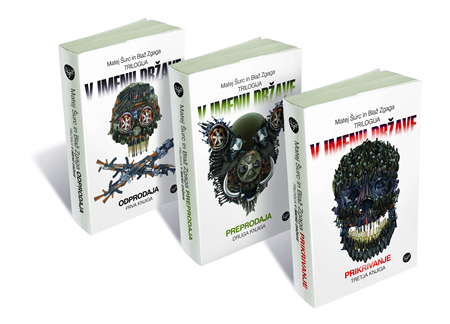
Matej Šurc and Blaž Zgaga will receive the Award of 5,000 EUR, offered by the CEI, on the occasion of the South East Europe Media Forum, to be held in Budva, Montenegro, on 22-23 October 2012.
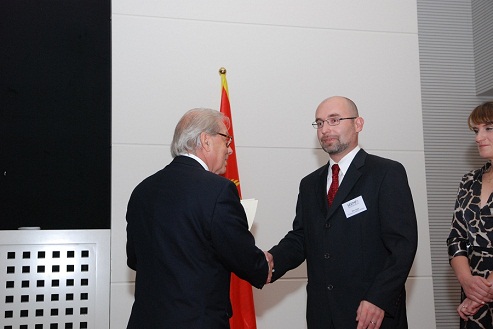
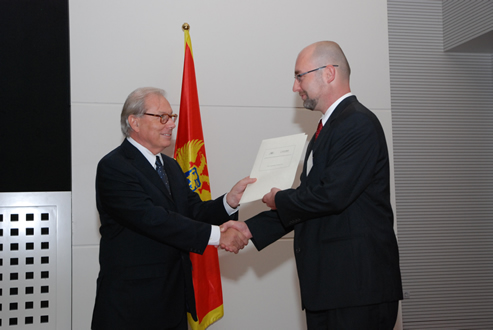
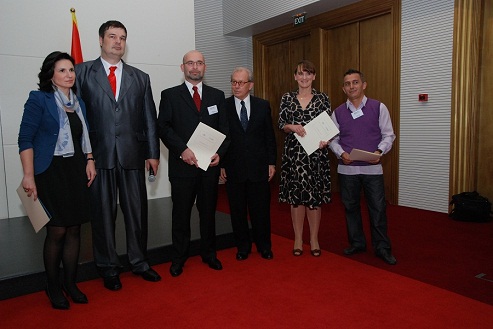
The Jury also decided to assign a Special Investigative Diploma to the Albanian journalist Telnis Skuqi, a correspondent for Albania’s Telegraphic News Agency (ATA) in the town of Gjirokastra, as recognition for work on investigative stories at a local level. A Special Mention was given to CIN Sarajevo for their remarkable contribution to investigative journalism in the region.
The Jury, which examined 22 nominations from 10 CEI countries, was composed of Andrzej Godlewski, Deputy Director of TVP1 (Poland), Drago Hedl, Editor of the Daily Jutarnji List (Croatia), Sasa Leković, freelance journalist and investigative reporting trainer (Croatia/Serbia), Besar Likmeta, Editor of the BIRN-Balkan Investigative Reporting Network (Albania), Mitja Mersol, founder of the International Media Centre (Slovenia-Austria); Adrian Mogos, Head of the Investigative Department of the Daily Jurnalul National (Romania).
CALL FOR PROPOSALS 2012
BACKGROUND
The Central European Initiative (CEI) was founded in 1989 as the first forum promoting regional cooperation among the countries of Central and Eastern Europe. Oriented towards policy dialogue, the CEI also focuses on economic growth and human development. Special attention is paid to capacity building, experience sharing and know-how transfer in order to achieve cohesion in areas of mutual interest and assist its non-EU Member States in consolidating their economic and social development in view of further EU integration. The CEI core mission is: regional cooperation for European integration, while acting as a bridge between macroregions. Cooperation in the field of media stands among CEI priorities. Initiatives are promoted to encourage experience sharing and awareness raising with the aim to endorse media pluralism, transparency and independence. www.ceinet.org
The South East Europe Media Organisation (SEEMO), an affiliate of the International Press Institute (IPI), is a regional non-governmental, non-profit network of editors, media executives and leading journalists from newspapers, magazines, radio and TV stations, news agencies and new media in South, East and Central Europe. With its committees, SEEMO aims to create a bridge between international media activities and the media developments in the region. One of SEEMO’s main activities is protecting press freedom by helping journalists and media outlets in South, East and Central Europe. Over 60 per cent of SEEMO’s press releases and letters of protest to governmental and other officials have had positive results in the past. www.seemo.org
The fruitful cooperation between the CEI and SEEMO has led to the creation of the Award for Outstanding Merits in Journalism which, since its first edition in 2008, was meant to honour journalists who highly contribute to investigative reporting despite the difficult conditions under which they often have to operate.
CRITERIA FOR ADMISSION
The Award is open to nationals of all 18 CEI Member States – Albania, Austria, Belarus, Bosnia and Herzegovina, Bulgaria, Croatia, the Czech Republic, Hungary, Italy, Macedonia, Moldova, Montenegro, Poland, Romania, Serbia, Slovakia, Slovenia and Ukraine – who have acquired in the last three years special merits in investigative journalism and who are still active in journalism. All media are accepted: print, broadcast, news agency or Internet.
The competing journalists should be nominated by individuals/organisations/media companies. Self-nominations are not allowed.
AWARD
The winning candidate will receive a cash prize of 5.000 EUR, offered by the CEI Secretariat, which will be officially presented on the occasion of the South East Europe Media Forum (SEEMF), to be held in Montenegro (Budva/Becici) on 15-16 October 2012.
COMPOSITION OF THE JURY
The International Jury is made up of distinguished journalists and media experts coming from the CEI region. Amb. Gerhard Pfanzelter, CEI Secretary General, Mr. Oliver Vujovic, SEEMO Secretary General, and Ms. Barbara Fabro, CEI Senior Executive Officer, will act as advisers.
TERMS OF PARTICIPATION
Applications should include the following documentation: 1. Filled in Application Form (here) 2. Curriculum Vitae of the candidate 3. Summary of the presentations of the candidate’s merits; details of the media which published / broadcasted the reports 4. Relevant supporting material about the candidate, such as TV reports on DVD, audio reports on CD, copies of articles in print media. The material prepared in local languages should be accompanied by a brief English translation. Please note that supporting material cannot be returned, therefore you are kindly invited to send copies of the original materials. Only applications including the above-mentioned documentation will be taken into account.
CLOSING DATE
Applications should be submitted by regular mail or e-mail within 30 June 2012 to: Ms. Barbara Fabro CEI Senior Executive Officer Via Genova, 9 – 34121 Trieste, Italy Tel. +39 040 77 86 777/725 – Fax +39 040 36 06 40 fabro@cei-es.org
SEEMO Regional Conference on Media, Minorities and Diversity, Tirana, Albania 24-26 October 2011
About
Following discussions during the conference on “Media, Minorities, Diversity”, held in Tirana, Albania, from 24 to 26 October 2011, and organised by the South East Europe Media Organisation (SEEMO), with support of the Austrian Development Agency (ADA), and in cooperation with Albania Media Institute and the International Media Centre (IMC), the participants concluded:
1. Many politicians and media representatives in South, East and Central Europe have difficulties accepting diversity: gender, sexual, religious, ethnic, political, etc. Hate speech, stereotyping, negative profiling and discriminatory language have not died out. It has subsided but is widely present. The targets are diverse: lesbian, gay, bisexual and transgender (LGBT) community; ethnic minorities; religious groups; women; neighbouring countries and nations; etc.
2. Although hate speech has many targets, some communities are targeted more often than others. In case of South, East and Central Europe, the LGBT community is targeted in a more degrading way than other groups. Roma have often suffered.
3. Neither governing parties nor mainstream media seem to have a long term vision of the type of society that should be created in terms of incorporation off all citizens, independently of their sexual orientation, ethnic or religious belonging. While legislation may be in place, often as a result of international agreements and even pressure, their implementation is not guaranteed. Hate speech is generally tolerated especially on web portals and among readers’ comments. As a result, there is a spill-over effect between the hate speech in public arena and news reporting. That is, most media simply reflect what is said, without taking a stand or condemning. Even public broadcasters are not immune to these practices.
4. Civil society organisations are not strong enough to defend the interests of different groups. Yet, some groups have better representation than others.
5. In many countries, legislation prohibits discrimination on sexual, gender, ethnic or religious grounds. Yet, implementing international standards and recommendations in daily life and especially in media is proving to be a real challenge.
6. Public at large is often unaware of the exact meaning of discrimination or hate speech. The latter concept is sometimes misused to denote political criticism.
7. Discriminating language, stereotyping, negative reporting is both overt and sophisticated. Both are dangerous. One adjective can change the meaning of a story: portraying sexual orientation as unnatural, a specific ethnic group as violent, a particular religion as uncivilized, women as sex symbols, political opponents as traitors, to give a few frequent examples.
8. Minority groups do not constitute a homogeneous community.
9. Yet, as the conference demonstrated, if civil society groups unite, nationally and regionally, they can all gain and better influence editorial policies; demand the change of government policies; increase pressure to gain public support, etc.
10. Public debate is lacking in all areas of discrimination. Some groups, however, as for example the LGBT community, have additional challenges: they fear to go public with their demands. It suffices to recall that in most South, East and Central European countries gay parades faced numerous problems.
11. Many editors and journalists lack sufficient training in how to report on diversity and minorities.
12. The existing minority do not have the outreach mainstream media have.
13. Minority media need public financial support in order to survive. They are too small in order to generate profit and operate commercial basis.
14. Roma media need special support, national and international, both in terms of funding and capacity building.
Recommandations
1. Education is the first step in combating hate speech and accepting diversity
2. While media reflect what politicians say and politicians quote media, this chain has to be stopped. Educating editors and journalists can be the first step.
3. Workshops, training sessions and conferences should be organized-each format has its advantages-in order to train, exchange information and share both bad and good experiences, as well as best practices.
4. Civil society groups representing different minority communities should be included in training and developing training materials. Networking is a key to overcoming stereotyping as well as combating intra-minority prejudices.
5. Public has to be educated. Yet, in order to engage in educating the public, media, as the main source of information, should be educated first. Inappropriately led and presented debates can create damage.
6. Education and training should encompass different categories of minorities: each has specific problems and sensitivities.
7. Creating international networks, especially in the geographic area with similar historic and cultural heritage, can have a positive effect: most countries compare themselves primarily with their neighbors; learning experiences and exchange of information can be more productive among the societies with similar experiences. Imported experiences are often looked upon and lack the local perspective that is essential in designing appropriate programs.
8. Media should make sure that international standards and recommendations in dealing with diversity are respected by politicians and by their colleagues in journalism. All media – mainstream and minority – have to follow professional and ethical standards.
9. Guidelines for reporting diversity exist. Yet, they have to be adapted to South, East and Central Europe. Imported standards often neglect local experiences and sensitivities.
10. SEEMO should facilitate international and regional networking of minority and diversity media.
11. Considering the Roma experience in and with media, SEEMO should adopt a medium-term strategy in support of Roma media and start organizing Roma Media Days on annual basis.
12. While the role of mainstream and minority media is essential in overcoming hate speech in its different forms, politicians also have to play an active role in combating discrimination, stereotyping, and negative portrayal of different groups as well as avoid inciting hatred or violence on any sort.
II Investigative Journalism Days, 27-30 June 2011 Belgrade – Serbia
The Vienna-based South East Europe Organisation (SEEMO), supported by the Austrian Cooperation Eastern Europe – Austrian Development Agency, and in cooperation with the Organization for Security and Co-operation in Europe (OSCE) Mission in Serbia, the International Press Institute (IPI) and the International News Safety Institute (INSI), announces its annual meeting of journalists dedicated to investigative journalism: The 2nd South, Central and East Europe Investigative Journalism Days.
The 2nd South, Central and East Europe Investigative Journalism Days will take place in Belgrade, Serbia, from 27 to 29 June 2011, and will focus on corruption.
The Conference will cover a variety of topics related to investigating corruption, personal security, reporting on extremist politicians – as well as a training session.
Speakers include prominent international journalists and media experts who have firsthand experience in investigative reporting, both on the international and local level. SEEMO registered more than 120 participants.
Serbia´s president Boris Tadic will address the conference on 29 June 2011.
Conclusion
The 2nd South, Central and East Europe Investigative Journalism Days: Focus on Corruption was organized by the Vienna-based South East Europe Media Organisation (SEEMO) in Belgrade, Serbia, from 27 to 29 June 2011.
Attended by more than 150 international journalists, the conference was supported by the Austrian Cooperation Eastern Europe – Austrian Development Agency, and involved cooperation with the Organization for Security and Co-operation in Europe (OSCE) Mission in Serbia, the International Press Institute (IPI), Vienna, Austria, and the International News Safety Institute (INSI), London, UK.
During numerous panel discussions, investigative journalists from Western and Eastern Europe, that is, established and emerging democracies, exchanged their experiences as investigative journalists. There appeared to be agreement that investigating corruption is a dangerous profession in all countries, but that the nature of the threat varies. In established democracies, journalists can face pressure from security services and courts seeking to identify confidential sources, while in emerging democracies in Eastern Europe investigating corruption can be life-threatening. In fact, several journalists who attended the conference had been severely beaten and some arrived with police protection.
Due to the economic crisis and diverse pressures, depending on the country, most media have opted out of investigative journalism: it is expensive, time consuming and dangerous. Yet, all panelists said they would continue with their investigative work.
The following conclusions can be drawn from the conference speeches and debates:
1) Investigative journalism is a dangerous but necessary profession: while investigative journalists suffer different types of pressure because of their work, the nature of the threat differs from country to country: in some countries it is all about surveillance and the revelation of sources. In others, journalists are beaten and killed.
2) In democratic countries the functioning judiciary system prosecutes those who threaten or attack journalists; in transitional democracies the courts and political authorities dismiss threats against journalists as part of their profession. In some countries, journalists are considered instruments of power and institutional mouthpieces.
3) Threats and pressures come from different sources: politicians, the state, business leaders, criminals and in some cases from religious leaders.
4) Those who exert pressure have clear objectives: to force journalists to stop writing and investigating, to desist from pursuing a particular story, and to engage in self-censorship.
5) Journalists consider that denouncing corruption is worth the risk. They continue working despite threats and pressure, and despite friendly advice from colleagues and friends who say: “Do you really have to write about this?”
6) While pressure on investigative journalists exists in most countries, it is in those states where institutions do not function or function poorly-especially the police and the judiciary- where impunity prevails. We call on political authorities to establish functioning institutions. Democracy is not only about elections.
7) Media owners and editors have to protect their journalists. Media workers should not be abandoned once they run into problems. Economic and professional support are essential.
8) Solidarity among journalists is another essential element. Turning away from those who have problems does not take away the problem. Solidarity can be expressed in many ways: spreading the news, showing support, exposing injustice.
9) In that respect, there is a proposal to create a Task Force focused on following police investigations and trials against individuals responsible for attacking journalists. It would be an ad hoc group, financed through an international grant, which would monitor trials, denounce irregularities and inform the public. This task force would strengthen the work of non-governmental organisations like the South East Europe Media Organisation (SEEMO).
10) Most speakers underlined the importance of international support in difficult moments. Politicians do not like to be criticized from abroad. That is the role of SEEMO: providing international professional support to threatened journalists and defending press freedom.
11) International support has another important aspect: cross-border cooperation. In practical terms, it implies the exchange of news, information and joint investigation projects.
12) Last but not least, creating formal and informal networks, both national and international, creating teams, building confidence and supporting colleagues are all essential.
Belgrade, Serbia
DOWNLOAD DOCUMENT
Janko Petkovic wins the SEEMO Human Rights Photo Award
The South East Europe Media Organisation (SEEMO) announces that Janko Petkovic (1985, Kragujevac, Serbia) won the SEEMO Human Rights Photo Award. The winning photograph Proboj (“Breakthrough”), shot on 10 October 2010 during the Gay Parade in Belgrade, Serbia, was selected by the SEEMO jury, headed by Dubravko Kolendic (NIN magazine, Belgrade).
Petkovic works as a photojournalist for the Belgrade-based Beta News Agency and freelances for Hello fashion magazine.
SEEMO Human Rights Award is part of the Beta Photo Award Competition. Both awards -BETA and SEEMO – will be presented to the winners on 19 May 2011 at new Moment Gallery in Belgrade, Serbia.
The winners of the BETA Photo Award Competition are: Louisa Gouliamaki, AFP, Greece, for the photograph Athens 1; Janko Petkovic, Beta, Serbia, for the photograph Proboj (“Breakthrough”) and Damir Sencer, HINA, Croatia, for the photograph Stop progunu hrvatskih branitelja (“Stop persecuting the defenders of Croatia”).
BETA has organised this photo competition since 2004 and SEEMO has participated for the past four years with its special award. In 2011, 11 photographers from nine countries submitted 486 entries for the competition. The awards are designed to promote photojournalism in South East Europe.
The winners of the previous SEEMO competitions are: Maja Zlatevska, Dnevnik, Skopje, in 2008; Nebojsa Radosavljevic-Raus freelance photographer from Belgrade, Serbia, in 2009; and Mahir Vranac, freelance photographer from Bosnia and Herzegovina in 2010.
The winning photograph, as well as the runners-up, will be printed in SEEMO publications and published on its website.
SEEMO Announces BETA Photo Award, and SEEMO Photo Human Rights Award, Competitions
As part of the BETA Photo Award competition, the Vienna-based South and East Europe Media Organization (SEEMO), a network of editors, media executives and leading journalists in South East and Central Europe and an affiliate of the International Press Institute (IPI), calls for the submission of entries for its 2011 SEEMO Human Rights Photo Award. The closing date for submitting photographs is 21 April 2011.
This is the eight consecutive competition organized by the Belgrade-based Beta news agency, designed to promote professional achievements in photojournalism in South East Europe. The winner is awarded 1,000 EUR. The runner-up receives 750 EUR and the third spot gets 500 EUR.
An exhibition of selected works will be inaugurated on 19 May 2011 at the New Moment Gallery in Belgrade, Serbia.
Telekom Srbija, the competition’s general sponsor, will award the best sports photograph.
SEEMO will award a special prize for the best human rights photograph. The winner will receive a special plaque. The winning photograph as well as all other pictures selected by the SEEMO jury will be published on the SEEMO webpage and in its publications: De Scripto magazine and South, East and Central Europe Media Handbook. They willalso be used for other media-related activities.
Mirjana Tomic, SEEMO Press Media Advisor and Project Manager, will present the award on behalf of Oliver Vujovic, Secretary General of the Vienna-based organisation.
The terms of the competition are posted at www.beta.co.rs/fotokonkurs
For all other information, please contact fotokonkursinfo@gmail.com


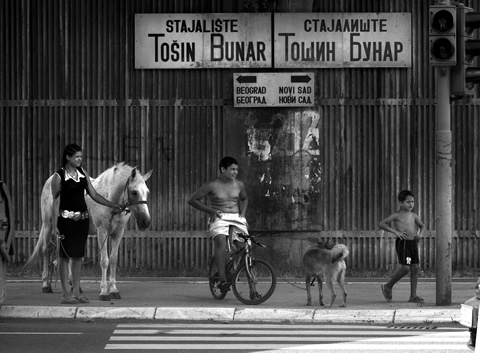
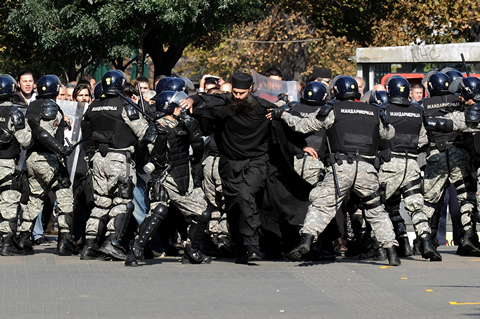
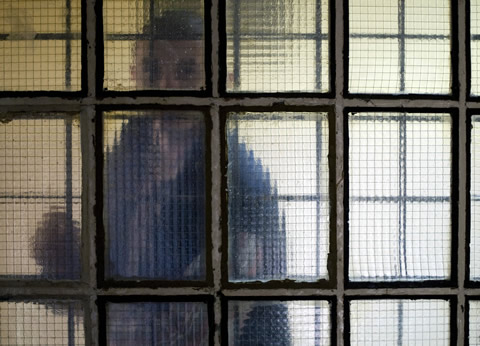

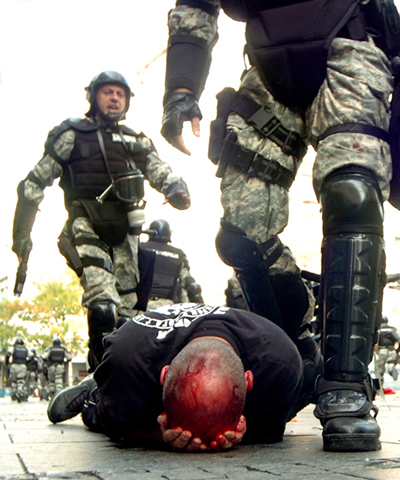
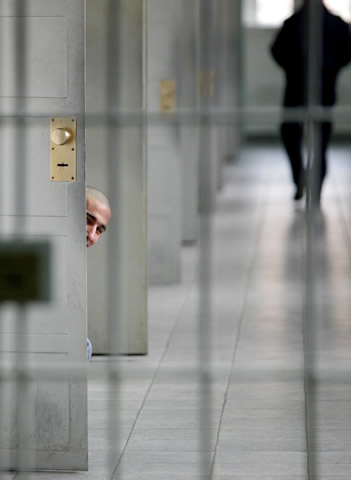

Veton Surroi Wins 2011 SEEMO Human Rights Award
Kosovo journalist, publisher, politician and human rights activist Veton Surroi has won the 2011 SEEMO Human Rights Award. The SEEMO board praised Surroi’s non-violent methods and consistent “commitment to human rights” in all of his professional activities.
The 2011 SEEMO Human Rights award will be presented to Veton Surroi on 24 November 2011 at 18.30 in the Hotel Victory, Pristina, Kosovo, during the international conference on News Agencies and New Media in South East and East Europe.
Born in 1961, Surroi spent many years abroad, mainly in Latin America, accompanying his father on his diplomatic missions. He obtained university degree in Mexico City, Mexico.
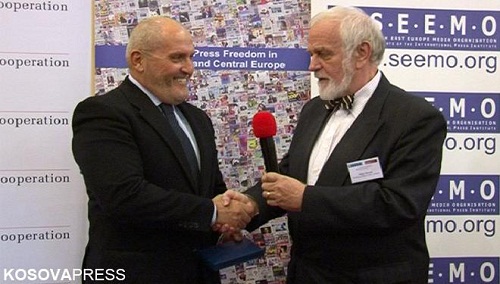
Presentation of the SEEMO Human Rights Award 2011 to Veton Surroi
It was unanimo Upon returning to Kosovo, he worked as a journalist for the Pristina-based daily Rilindja. After the fall of communism, he founded the Koha Media Group, which became one of the most influential media groups in Kosovo. As a journalist, Surroi defended Kosovo Albanians against the policies of former Serbian President Slobodan Milosevic. As an influential public figure, both as a political and a civil society activist, he participated in the 1999 Rambouillet peace talks and was one of the signatories of the Rambouillet Agreement.
The Rambouillet Agreement was a proposed peace agreement between then-Yugoslavia and a delegation representing the ethnic-Albanian majority population of Kosovo presented in Rambouillet castle in France.
As head of the Reformist Party ORA and an MP (2005 –2007), he participated on behalf of the Unity Team of Kosovo, which negotiated the country’s independence.
Surroi currently chairs the Board of the Foreign Policy Club, a Kosovo NGO specialised in international policy.
Surroi has edited numerous books and in 2005 published a recompilation of his texts in the volume: Fluturimi i vetëm i Azem Berishës për në Kështjellë ( “Azem Berisha’s One and Only Flight to the Castle”).
In 2000, Surroi received the IFJ Award of the Year as well Holland’s Geunzejgen Medal and the National Endowment of Democracy Award.
The SEEMO Human Rights Award was established in 2002. Previous award winners are:
2010: Christo Komarnitski, cartoonist, Bulgaria. 2009: Pavol Demes, Director, German Marshall Fund of the United States (GMF), Bratislava office, Slovakia. 2008: Spomenka Hribar, journalist, writer and human rights advocate, Slovenia. 2007: Seki Radoncic, writer and human rights activist specialised in war crimes, Montenegro. 2006: Abdulhalim Dede, journalist, member of the Turkish-Muslim minority in Western Thrace, Greece. 2004: Fatos Lubonja, author, Albania. 2003: Nebojsa Popov, founder and editor of the Belgrade-based magazine Republika, Serbia. 2002: Christine von Kohl, founder of the Vienna-based magazine Südosteuropäischer Dialog , Austria.
Drago Hedl Wins ‘Dr. Erhard Busek – SEEMO 2011 Award’ for Better Understanding in South East Europe
Croatian journalist Dragutin-Drago Hedl is the winner of the 2011 Dr. Erhard Busek – SEEMO Award for Better Understanding in South East Europe. An 11-member international jury honoured Hedl for his outstanding contribution to improving inter-ethnic communication and reconciliation, as well as for his investigative reporting on war crimes committed in Croatia in the 1990s
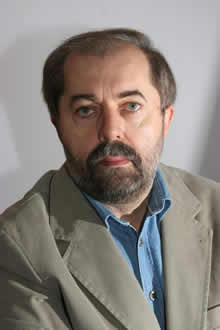
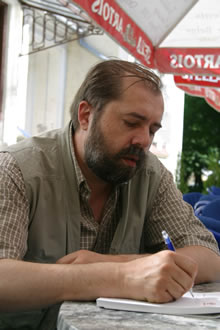
Drago Hedl was born in 1950, in Osijek, Croatia, a town 280 kilometers east of the capital, Zagreb. He began his career in 1975 with the literary magazine Revija in Osijek. From 1980 to 1991, he worked as a journalist and editor for the main regional daily Glas Slavonije. Upon the outbreak of the Serbo-Croat war in Croatia, Hedl refused to participate in war propaganda efforts and acts of hate speech. As a result, he was sacked in 1991 when politicians and the local army bosses stormed the paper’s building.
From 1991 to 1994, he covered the wars in Croatia and Bosnia for the Split-based daily Slobodna Dalmacija. After a year spent in London, working for the Institute for War and Peace Reporting, Hedl returned to Croatia. He worked for Feral Tribune, Novi List and since 2008 he has been writing the Zagreb daily Jutarnji List. In addition to writing for the Croatian media, he is published in The Guardian, Time magazine, Die Wochenzeitung, and numerous other US and European publications.
Due to his balanced reporting and investigations into war crimes, Held has been the target of government criticism, law suits, physical attacks and death threats. Nationalist organizations proclaimed him an enemy of the people. The latest death threat came in July 2011.
Hedl has written eight books and four scripts for documentaries, including the award-winning “Vukovar- the Final Cut” (Human Rights Award, 12thSarajevo Film Festival, Bosnia and Herzegovina). For his book on the convicted war criminal, Branimir Glavas, Glavas, the Chronicle of Destruction, Hedl received the Jutarnji List Award for the best non-fiction book in Croatia in 2010. Among the other prestigious Croatian and international awards he has received are: The Knight International Press Fellowship Award (2006) and The Central European Initiative Award for Outstanding Merits in Investigative Journalism (2008).
Hedl holds a B.A. Degree in Literature from the Pedagogic Academy in Osijek, Croatia.
Presentation of the Dr. Erhard Busek SEEMO Award 2011 to Drago Hedl, Croatia (Photo: Dr. Erhard Busek, Drago Hedl, Oliver Vujovic)
Dr. Erhard Busek and Oliver Vujovic, SEEMO Secretary General, will present the award on 28 October 2011 at 7 PM at Haus der Musik, Seilerstätte 30, Vienna, Austria.
The presentation will be followed by a panel discussion: “How does leaking change the World?
The panelists are:
Patrick McCurdy, Assistant Professor, Department of Communication, University of Ottawa, Canada Anthony Mills, Press Freedom & Communications Manager, International Press Institute, Austria
Chair: Fiona Spruill, Editor, Emerging Platforms, The New York Times, USA
The event is part of the annual meeting of the Commission on Media Policy, organised by the Duke University School of Public Policy, ORF, European Forum Alpbach, ERSTE Stiftung and Styria International.
The Dr. Erhard Busek – SEEMO Award for Better Understanding, with a value of 3000 EUR, is sponsored by Dr. Erhard Busek, Jean Monnet Professor ad personam, President of the Institute for the Danube Region and Central Europe, Coordinator of SECI – the Southeast European Cooperative Initiative, former Special Coordinator of the Stability Pact for South Eastern Europe, and President of the European Forum Alpbach.
The Dr. Erhard Busek – SEEMO Award for Better Understanding was introduced in 2002.
The previous winners are:
2010: Omer Karabeg (Bosnia and Herzegovina), journalist with the South Slavic and Albanian Language Service program of Radio Free Europe (RFE/RL), founder and editor of the radio show Most (Bridge), Prague, Czech Republic.
2009: Boris Bergant (Slovenia), co-founder of the Alpe Adria broadcasting project, former deputy-president of the European Broadcasting Union (EBU) and former deputy director of Radio Television Slovenia.
2008: Brankica Stankovic (Serbia), author of the TV program Insajder, produced by B92 Television, Belgrade, Serbia.
2007: Milena Dimitrova (Bulgaria), columnist for the Sofia-based daily Trud, (2007).
2006: Danko Plevnik (Croatia), columnist for the Split-based daily Slobodna Dalmacija,
2005: Brankica Petkovic (Slovenia), Head of the Center for Media Policy, Peace Institute, Ljubljana, Slovenia.
2003: Kemal Kurspahic (Bosnia and Herzegovina), former editor-in-chief of the Sarajevo-based daily Oslobodjenje.
2002: Denis Latin (Croatia) author of the TV show Latinica.
Polish Journalist Kalicki Włodzmierz Wins CEI SEEMO Award for Outstanding Merits in Investigative Journalism 2011
Special Investigative Journalism Diploma to Artan Hoxha (Albania), Dijana Subotički (Serbia), Matej Šurc and Blaž Zgaga (Slovenia)
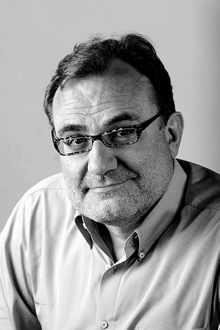
Presentation of the CEI SEEMO Award in Belgrade, November 2011
Uručene nagrade SEEMO fotoreporterima
The Central European Initiative (CEI) and the South East Europe Media Organisation (SEEMO) are pleased to announce the winner of the CEI SEEMO Award for Outstanding Merits in Investigative Journalism 2011, Mr. Kalicki Włodzmierz.
On 26 September 2011, the international jury met in Trieste at the CEI Headquarters and examined 26 nominations from 13 CEI Member States. The personal risks taken while performing their duties, the quality of reporting as well as the impact on society of the messages conveyed were the main criteria taken into account. The jury was composed of Pier Paolo Garofalo, Editor of the daily “Il Piccolo” (Italy), Andrzej Godlewski, Deputy Director of TVP1 (Poland), Drago Hedl, Dditor of the Daily Jutarnji List (Croatia), Sasa Leković, free lance Journalist and Investigative Reporting Trainer (Croatia/Serbia), Besar Likmeta, Editor of BIRN-Balkan Investigative Reporting Network (Albania), Mitja Mersol, President of the International Media Centre – Ljubljana (Slovenia); Adrian Mogos, Head of the Investigative Department of the Daily Jurnalul National (Romania). The meeting was also attended by Oliver Vujovic (SEEMO Secretary General) acting as advisor together with Zoran Jovanovic (CEI Deputy Secretary General) and Barbara Fabro (CEI Senior Executive Officer).
Kalicki’s last success in investigative journalism was his tracking down in Germany of a famous painting by the Polish nineteenth century artist, Aleksander Gierymski. That work of art, entitled ”A Jewish Woman with Oranges”, was stolen from the National Museum in Warsaw during WWII. It was one of the most relevant paintings in the history of Polish art; searched, in vain, for many years after the war. Kalicki’s investigations helped Poland regain priceless items of huge value to the national culture. Furthermore, his articles highly contributed to disseminating information about the loss of the Polish cultural heritage during WWII.
Kalicki Włodzmierz will receive the Award of 5.000 EUR, offered by the CEI, on the occasion of the South East Europe Media Forum to be held in Belgrade, Serbia, on 2-3 November 2011.
The Jury decided to award a special investigative journalism diploma to Artan Hoxha (Albania) for his brave and professional coverage of police brutality during Albania’s January 2011 anti-government protest and penetrating documentaries on some of the wildest gangs in gangland Albania in the 1990s; to Dijana Subotički (Serbia) for her work on investigative stories along the news and reports, covering failures, missuse of power and corruption at local and regional level, but also as a message to journalists working on investigative stories at local level; to Matej Šurcand Blaž Zgaga (Slovenia), authors of the first of the book trilogy “In the name of the state”, for their investigative work on arms trade in Slovenia in 1990, based on consistent research of the arms dealings, supported by numerous documents and verified by credible sources as well as on a cross border investigative cooperation, which is an added value to the whole story.
CALL FOR PROPOSALS 2011
BACKGROUND
The Central European Initiative – CEI (www.ceinet.org) was founded in 1989 as the first forum promoting regional cooperation among the countries of Central and Eastern Europe. Since its establishment, the CEI activities have focussed on fostering political and socio-economic development in the region aimed at avoiding new dividing lines in Europe. Its core mission is: Regional Cooperation for European Integration. Cooperation in the field of media stands among CEI priorities. Initiatives are promoted to encourage experience sharing and awareness raising with the aim to endorse media pluralism, transparency and independence. The fruitful cooperation with the South East Europe Media Organisation – SEEMO (www.seemo.org) has led to the creation of the Award for Outstanding Merits in Journalism which, since its first edition in 2008, was meant to honour journalists who highly contribute to investigative reporting despite the difficult conditions under which they often have to operate.
Criteria for admission
The Award is open to nationals of all 18 CEI Member States (Albania, Austria, Belarus, Bosnia and Herzegovina, Bulgaria, Croatia, the Czech Republic, Hungary, Italy, Macedonia, Moldova, Montenegro, Poland, Romania, Serbia, Slovakia, Slovenia and Ukraine) who have acquired in the last three years special merits in investigative journalism and who are still active in journalism. The competing journalists should be nominated by individuals/organisations/media companies. Self-nominations are not allowed. All media are accepted: print, broadcast, news agency or Internet.
AWARD
The winning candidate will receive a cash prize of 5.000 EUR, offered by the CEI Secretariat, which will be officially presented on the occasion of the South East Europe Media Forum, to be held in Belgrade in November 2011.
Composition of the jury
The International Jury is made up of distinguished journalists and media experts coming from the CEI region.
Amb. Gerhard Pfanzelter, CEI Secretary General, Mr. Oliver Vujovic, SEEMO Secretary General, and Ms. Barbara Fabro, CEI Senior Executive Officer, will act as advisers.
Terms of participation
Applications should include the following documentation: 1. Filled in Application Form (here) 2. Curriculum Vitae of the candidate 3. Summary of the presentations of the candidate’s merits; details of the media which published / broadcasted the reports 4. Relevant supporting material about the candidate (TV reports on DVD, audio reports on CD, copies of articles in print media). Reports in local languages should be accompanied by a brief English translation. Please note that supporting material cannot be returned, therefore you are kindly invited to send copies of the original materials.
CLOSING DATE
Applications should be submitted by regular mail or e-mail within 1 September 2011 to:
Ms. Barbara Fabro, Senior Executive Officer CEI Secretariat Via Genova, 9 – 34121 Trieste, Italy Tel. +39 040 77 86 777/725 – Fax +39 040 36 06 40 fabro@cei-es.org

